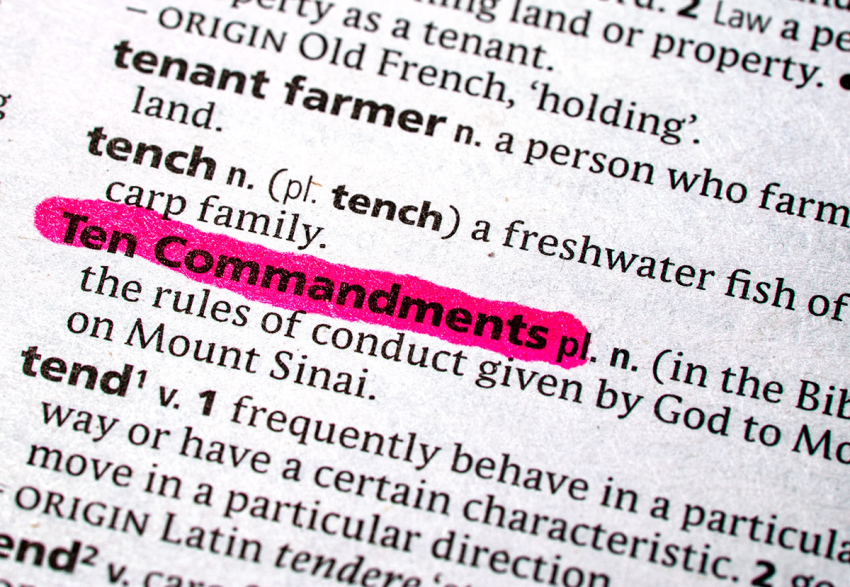Louisiana can force some schools to display Ten Commandments, appeals court rules

A federal appeals court has limited the scope of a lower court ruling that prohibited Louisiana from enforcing a new law that requires the placement of Ten Commandments displays in public school classrooms.
A three-judge panel of the U.S. Court of Appeals for the 5th Circuit issued an order last Friday allowing the law requiring the Decalogue displays to take effect in the school districts that do not have parents challenging the measure. The law is slated to take effect on New Year's Day.
Louisiana Attorney General Liz Murrill celebrated the order, saying in a statement she looks forward to "immediately working with all of our school boards who are not involved in this lawsuit to implement the law soon!”
In June, Louisiana Gov. Jeff Landry signed House Bill 71 into law, which requires public school classrooms to display "certain historical documents," among them the Ten Commandments, the Mayflower Compact, the Declaration of Independence and the Northwest Ordinance.
The measure specifically mandates classrooms have a 11-by-14-inch display along with an accompanying “context statement” explaining the Ten Commandments’ historical influence.
"Recognizing the historical role of the Ten Commandments accords with our nation's history and faithfully reflects the understanding of the founders of our nation with respect to the necessity of civic morality to a functional self-government," stated the legislation.
"Including the Ten Commandments in the education of our children is part of our state and national history, culture, and tradition."
Soon after HB 71 became law, the American Civil Liberties Union, the Freedom From Religion Foundation and Americans United for Separation of Church and State filed suit against it on behalf of an interfaith group of parents.
"[F]or nearly half a century, it has been well settled that the First Amendment forbids public schools from posting the Ten Commandments in this manner," read the complaint.
"Plaintiffs seek a declaratory judgment that the Act is unconstitutional and preliminary and permanent injunctive relief to prevent Defendants from (i) implementing rules and regulations in accordance with the Act, (ii) otherwise seeking to enforce the Act, and (iii) displaying the Ten Commandments in any public-school classroom."
U.S. District Judge John W. deGravelles, an Obama appointee, issued a lengthy ruling and order last Tuesday, temporarily blocking enforcement of the law while the litigation continued.
"Plaintiffs have established a viable Free Exercise claim," wrote deGravelles. "H.B. 71 is not neutral toward religion, and this is evident from the text of the statute, its effects, and the statements of lawmakers before and after the Act's passage."
The judge also took issue with the defendants' claim that the Ten Commandments is a historically integral part of public education in United States history.
"In sum, the historical evidence showed that the instances of using the Ten Commandments in public schools were too 'scattered' to amount to 'convincing evidence that it was common' at the time of the Founding or incorporation of the First Amendment to utilize the Decalogue in public-school education," deGravelles added.
"That is, the evidence demonstrates that the practice at issue does not fit within and is otherwise not consistent with a broader historical tradition during those time periods."



























